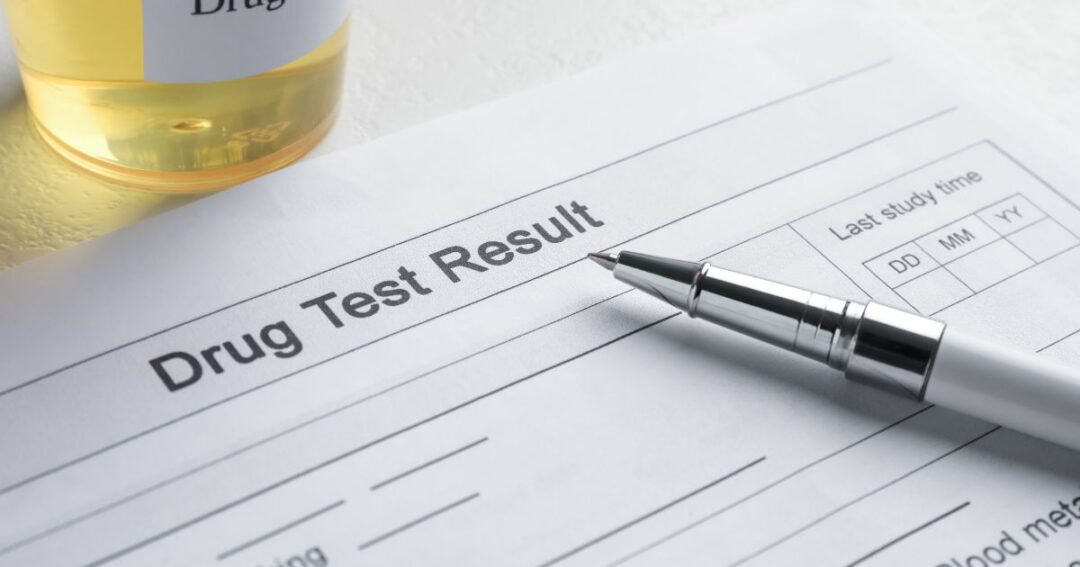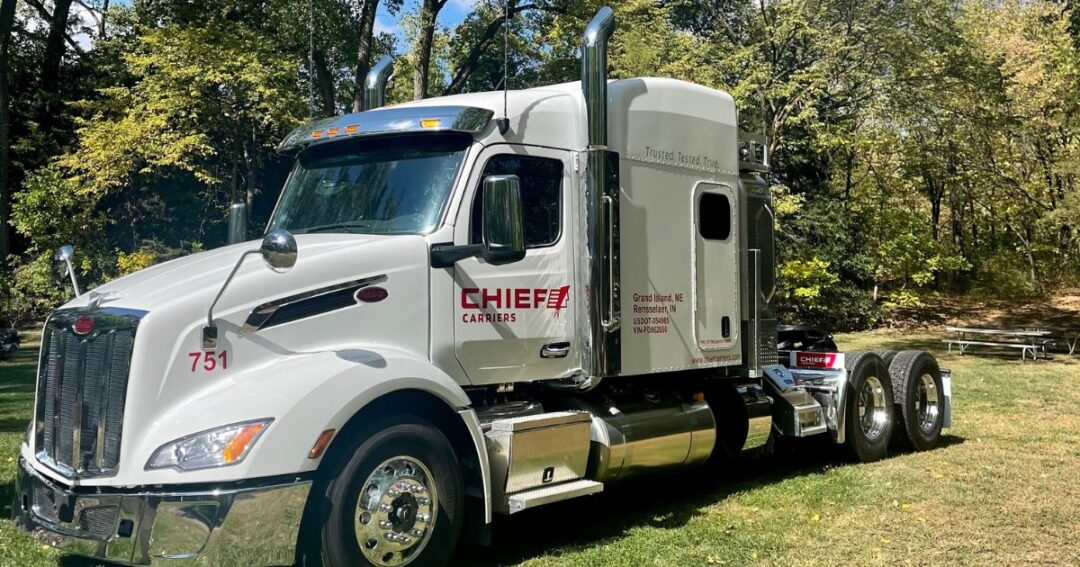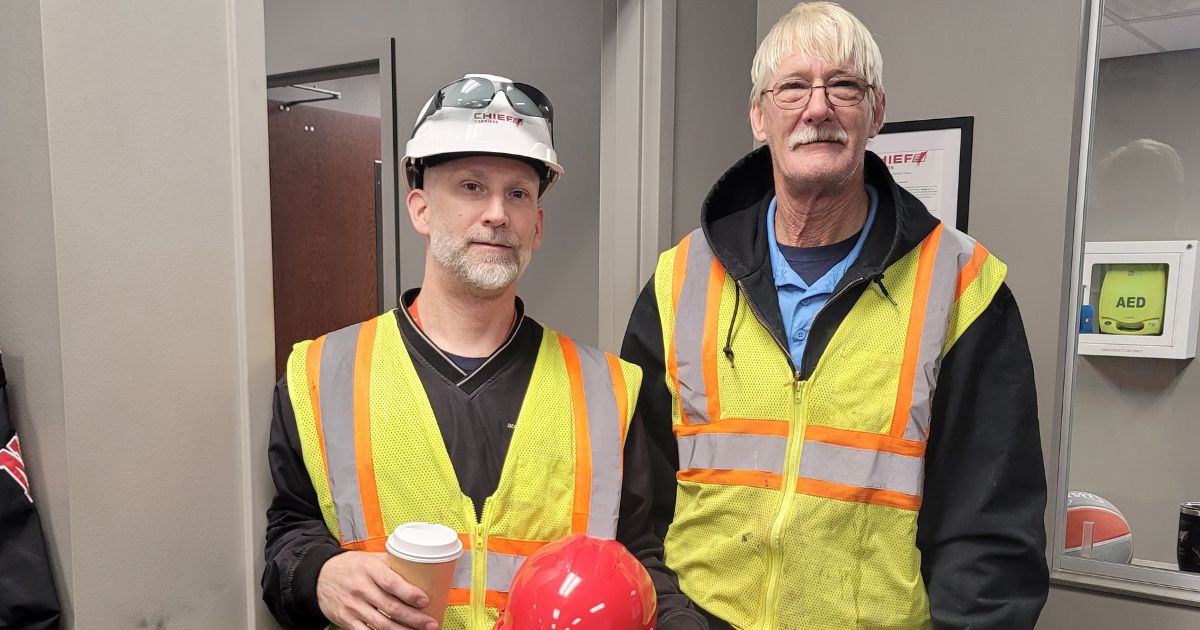What’s Nex From A Positive Drug Test as a Truck Driver?
Let’s get honest: a positive drug test can feel like a devastating blow to your trucking career. It’s a situation no driver wants to face, but unfortunately, it’s a reality for some.
The trucking industry takes drug and alcohol use very seriously and with good reason. Safety is paramount, and any impairment behind the wheel can have catastrophic consequences.
However, a positive drug test doesn’t have to be the end of the road. In this Driven Too Far post, we’ll navigate what happens after a positive drug test.
The Federal Motor Carrier Safety Administration
There are steps you can take to get back on track and continue your career as a professional truck driver and to keep compliant with your trucking company and the Federal Motor Carrier Safety Administration (FMCSA.)
How the Clearinghouse Tracks Drug and Alcohol Violations
In January 2020, the Federal Motor Carrier Safety Administration launched the Drug and Alcohol Clearinghouse. This secure online database tracks drug and alcohol violations by commercial drivers, including positive drug tests and refusals to test.
Carriers are required to report any positive drug or alcohol test results, as well as any refusals to test, to the Clearinghouse. They must also conduct annual queries of the Clearinghouse for all current and prospective employees.
Understanding the Clearinghouse is crucial for any truck driver. A positive test or refusal to test will remain on your record for a specified period, impacting your ability to find employment with other carriers. It’s essential to be aware of this and take the necessary steps to clear your record and regain your CDL.
The Impact of a Positive Drug Test on Your Trucking Career
Failing a drug test can have serious and lasting consequences for your trucking career. The immediate impact is often swift and severe, including:
- Job Loss: Most trucking companies have a zero-tolerance policy for drug use, and a positive test will likely result in immediate termination.
- Financial Strain: Losing your job means losing your income, which can create significant financial hardship for you and your family.
- Damaged Reputation: A positive drug test can tarnish your reputation as a professional driver, making it more difficult to find employment with other carriers.
In the long term, a positive drug test can limit your job opportunities and hinder career advancement. Even after completing the SAP program, you may face challenges securing employment with certain carriers or obtaining certain types of insurance.
However, it’s important to remember that a positive drug test doesn’t have to define your career. By taking responsibility for your actions, completing the SAP program, and demonstrating a genuine commitment to sobriety, you can rebuild your reputation and find meaningful employment in the trucking industry.

What is SAP and How Does It Work?
If you receive a positive drug test, the FMCSA requires you to complete a Substance Abuse Professional (SAP) program before you can return to driving.
A SAP is a qualified professional who evaluates your situation and develops a personalized treatment plan to help you address any substance abuse issues.
SAP Steps
The SAP program typically involves the following steps.
- Initial Assessment: The SAP will conduct an in-depth interview to evaluate your substance use history, identify any underlying issues, and determine the appropriate level of treatment.
- Counseling and Education: You’ll participate in individual or group counseling sessions, as well as educational programs, to learn about addiction, develop coping mechanisms, and build a support network.
- Follow-Up Testing: You’ll be subject to unannounced follow-up drug and alcohol testing to monitor your progress and ensure you remain substance-free.
- Return-to-Duty Process: Once you’ve successfully completed the SAP program, the SAP will provide you with a clearance letter, allowing you to begin the return-to-duty process with your employer or a new carrier.
Completing the SAP program is not only necessary to regain your CDL, but it’s also an opportunity to address any underlying issues and make positive changes in your life.
SAP-Friendly Trucking Companies: Finding a Second Chance
Not all trucking companies are willing to hire drivers with a history of positive drug tests, but some, known as “SAP-friendly” companies, are open to giving drivers a second chance. These companies recognize that people make mistakes and that recovery is possible.

When considering drivers with a positive drug test history, SAP-friendly companies typically look for:
- Successful completion of the SAP program: A clearance letter from your SAP is essential.
- Demonstrated commitment to sobriety: Evidence of ongoing participation in support groups or continued counseling can show that you’re serious about recovery.
- Time since the violation: The more time that has passed since your positive test, the better your chances of getting hired.
- Overall driving record and work history: A strong driving record and positive work history can help offset a past mistake.
Finding SAP-friendly trucking companies may require some additional effort, but it’s definitely possible. Here are some tips:
Search for “SAP-friendly trucking companies” or look for companies that specifically mention their willingness to hire drivers who have completed the SAP program.
Be upfront with recruiters about your situation and ask if their company is SAP-friendly. Remember, honesty and transparency are key when applying for trucking jobs after a positive drug test.
By being upfront about your past and demonstrating your commitment to sobriety, you can find a carrier that’s willing to give you a second chance.
Avoiding Positive Drug Tests: Protecting Your Career and Your Well-Being
The best way to deal with a positive drug test is to avoid it altogether. Remember, drug and alcohol use while operating a commercial vehicle is not only illegal but also incredibly dangerous. It puts your life, the lives of others on the road, and your career at risk.
It may seem obvious, but the simplest way to avoid a positive drug test is to abstain from using drugs and alcohol altogether.
Be mindful of prescription medications. Some prescription medications can cause false positives on drug tests. If you’re taking any medications, inform your employer and the testing facility.
Even secondhand smoke can lead to a positive drug test. Be mindful of your surroundings and avoid situations where you might be exposed to smoke.
If you’re struggling with substance abuse, don’t hesitate to seek professional help. There are many resources available to truck drivers, including confidential hotlines and support groups.

Building Your Trucking Career
A positive drug test is a serious setback, but it’s not the end of the world. By understanding the consequences, taking responsibility, and seeking help, you can overcome this challenge and continue your career as a professional truck driver.
Don’t give up on your dreams. With hard work and dedication, you can get back on the road and achieve success in the trucking industry.
If you or someone you know is struggling with substance abuse, please reach out for help. There are many resources available, and you don’t have to face this challenge alone.
At Chief Carriers, we prioritize the well-being of our drivers. If you’re looking for a supportive and understanding carrier that values safety and second chances, we encourage you to explore our truck driver job opportunities.
Drive with Chief
Becoming a lease driver can be a rewarding career path, but it’s not without its challenges. By understanding the ins and outs of truck lease programs, asking the right questions, and setting realistic expectations, you can increase your chances of finding a carrier that’s the right fit for you.
If you’re considering becoming a lease operator, we invite you to contact Chief Carriers. We’re committed to open communication, transparency, and providing the support and resources you need to succeed as an independent contractor.
If you have any experiences with fuel fraud or tips for preventing it, we’d love to hear from you! Share your thoughts in the comments below, or tune into the full episode of Driven Too Far to learn more about this important issue.
The Driven Too Fast Podcast is produced by Two Brothers Creative.

